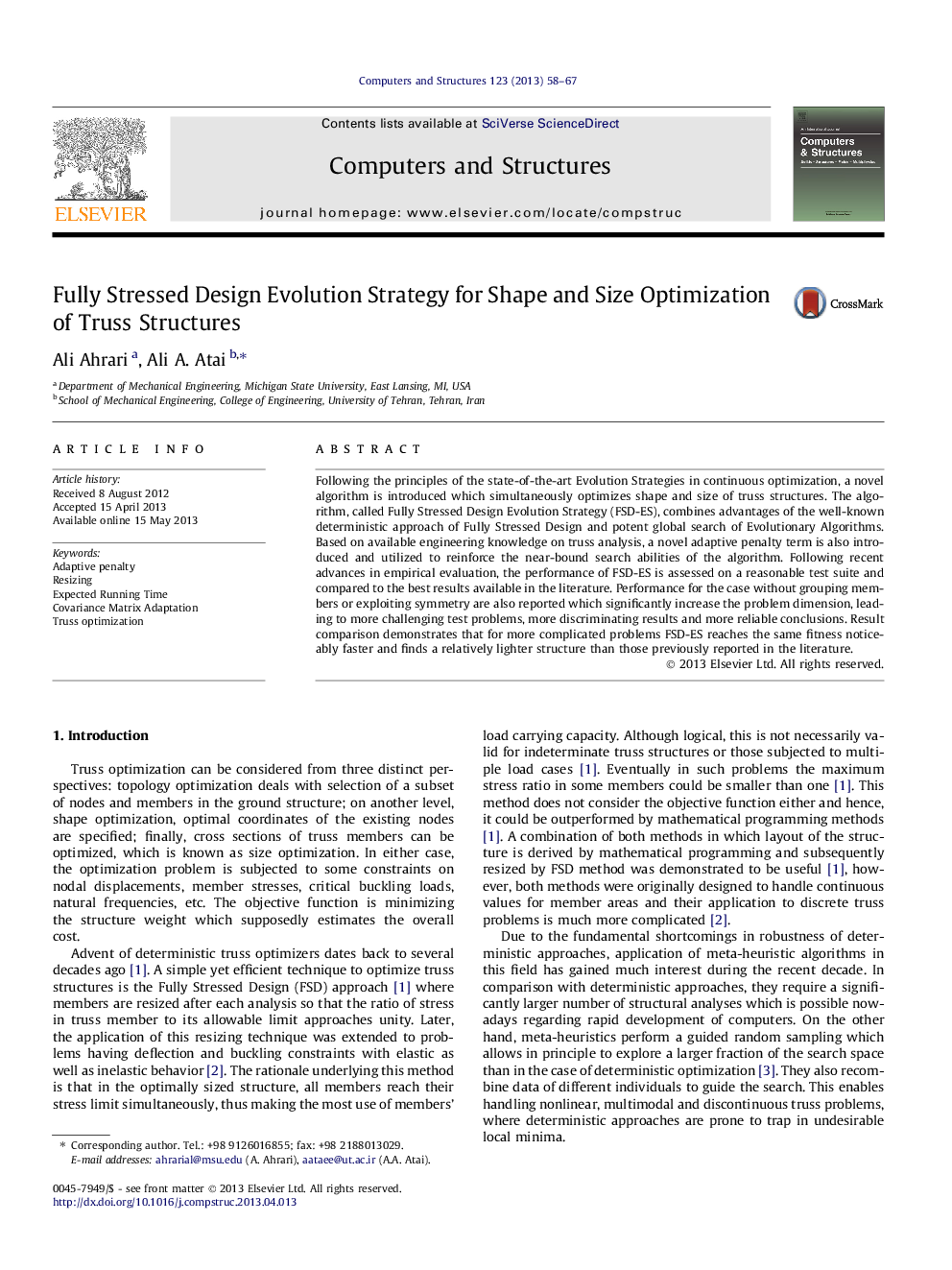| Article ID | Journal | Published Year | Pages | File Type |
|---|---|---|---|---|
| 510388 | Computers & Structures | 2013 | 10 Pages |
•A stochastic algorithm, called FSD-ES, for optimization of truss structures is introduced.•The algorithm combines advantages of optimality criteria approach and potent global search of ESs.•An adaptive penalty term based on available engineering knowledge on truss analysis is introduced.•FSD-ES significantly outperforms available optimizers on problems of larger scales.
Following the principles of the state-of-the-art Evolution Strategies in continuous optimization, a novel algorithm is introduced which simultaneously optimizes shape and size of truss structures. The algorithm, called Fully Stressed Design Evolution Strategy (FSD-ES), combines advantages of the well-known deterministic approach of Fully Stressed Design and potent global search of Evolutionary Algorithms. Based on available engineering knowledge on truss analysis, a novel adaptive penalty term is also introduced and utilized to reinforce the near-bound search abilities of the algorithm. Following recent advances in empirical evaluation, the performance of FSD-ES is assessed on a reasonable test suite and compared to the best results available in the literature. Performance for the case without grouping members or exploiting symmetry are also reported which significantly increase the problem dimension, leading to more challenging test problems, more discriminating results and more reliable conclusions. Result comparison demonstrates that for more complicated problems FSD-ES reaches the same fitness noticeably faster and finds a relatively lighter structure than those previously reported in the literature.
